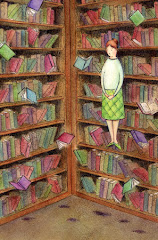
The more I learn about the Wild Wide Web, the more I realize how unfathomably large it is, growing like a wildfire out of control. No one is in charge; it has a life of its own.
Linear communication and learning are dead or dying. While there are obvious advantages to the multi-dimensional approach the web provides, it is too easy to lose one's way. Who hasn't sat down at a computer for a few minutes only to discover that hours have elapsed. The experience can be rather like having ADD. In the meantime, the degree of separation between each human being shrinks and we become even more closely linked, like cells in a giant organism.
Way back in December 2000, George Johnson wrote in The New York Times about web growth in First Cells, Then Species, Now the Web. He reported on the flurry of research and papers from scientists who have watched the Internet grow and proliferate like a living organism, concluding that "it may be designed according to the same rules that nature uses to spin webs of its own. The networks of molecules in a cell, of species in an ecosystem, and of people in a social group may be woven on the same mathematical loom as the Internet and the World Wide Web." The body of information and connections out there are so huge no one can hope to absorb even a fraction. So we become more and more specialized, just like individual cells in a living organism.
One of my library school professors laughed that librarians are "professional dilettantes." At the time I liked the description because in our profession we learn new things every day. But there is also the negative connotation of "dilettante," an implication of shallowness, a lack of depth of knowledge of any particular subject. We try to learn everything we can about what is new and available on the web, but in the end we have to choose what is most useful in our lives. It is ultimately more desirable and satisfying, I feel, to know a few subjects well than to dabble in everything that comes our way. After all, life is short. So we learn what we can about what's out there, choose what we want, and then leave the rest behind.

No comments:
Post a Comment